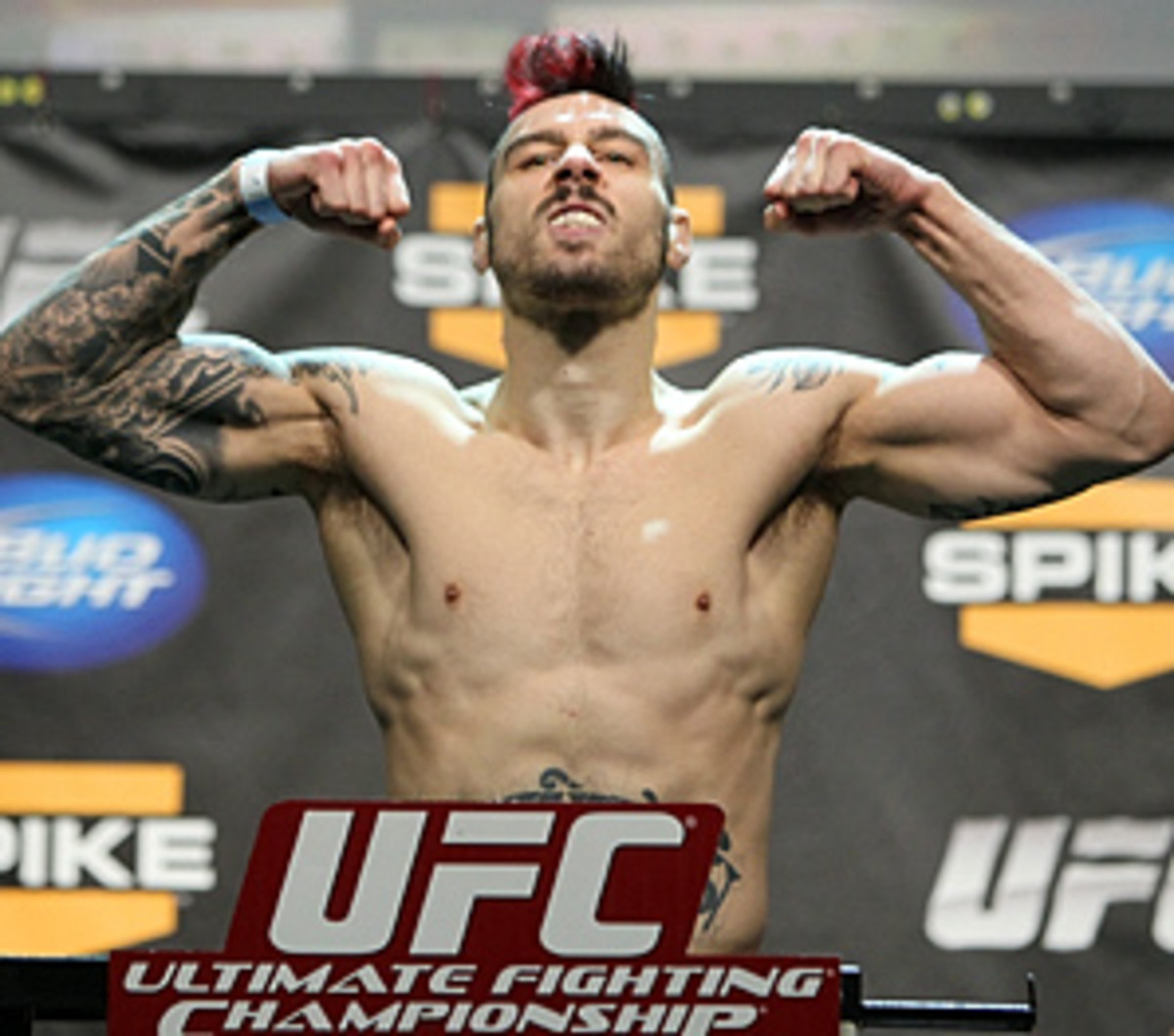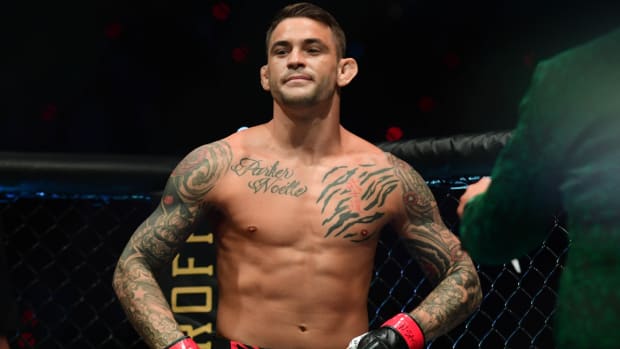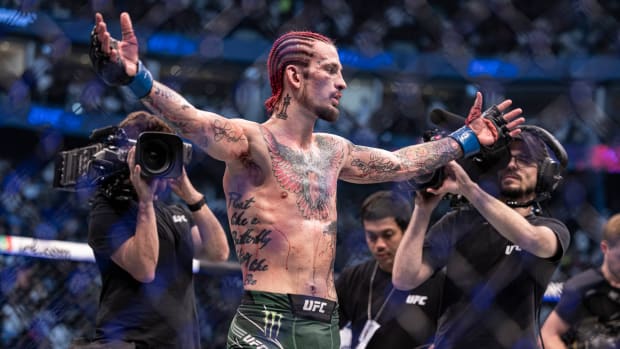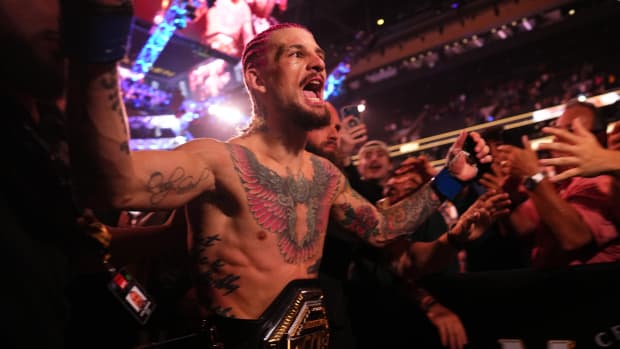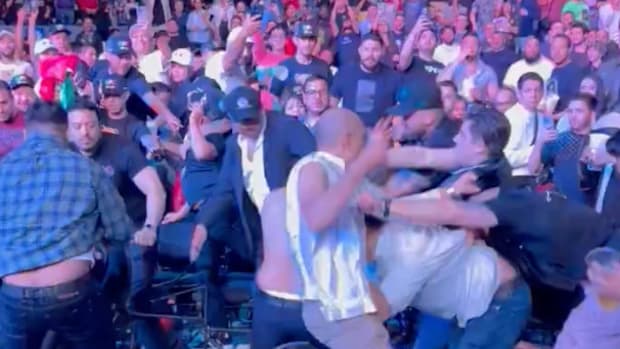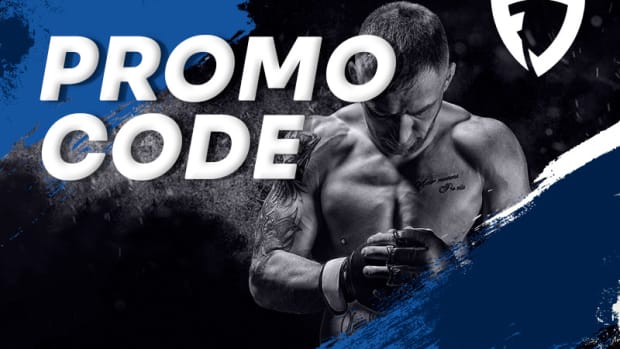MMA embraces social media craze
One inevitably sunny Las Vegas week early in the year, the UFC sequesters all of its fighters in a hotel and gives them the need-to-knows of working for the biggest MMA promotion. At some point in the gathering, as the world's toughest men do their best impression of conventioneers, there's a section on self-promotion, and social networking comes to the fore.
This discussion is led by UFC president Dana White, a staunch devotee of Twitter and a popular presence with nearly 1.4 million followers. Build your brand, he tells the guys. You can increase your worth without the UFC's help. Twitter, in all its textual freedom, is your friend. So much space to promote, interact and inform.
Emphasis on inform.
"He was like, 'I want you guys to Twitter, Facebook, get your name out there,' " lightweight Jeremy Stephens said. "He said, 'In this business, you only last so long as a fighter. It's your job to fight hard and train hard, but at the same time, make sure you make a name for yourself.' "
Fighters are now a couple of years into the social networking craze, just as the rest of us, and they're making all kinds of noise about everything. A lot of things you wouldn't necessarily hear in front of a camera, and a lot of things you really didn't need or want to know.
"Watching Human Planet on Discovery," Tyson Griffin wrote in a recent dispatch. "Crazy stuff! Steal a baby eagle and teach it to hunt! Never seen anything like this before."
While most tweets add to the static of daily life, some carry a message. In fact, many fighters have taken the social networking tool and turned it into a career forum. More than ever, they're starting their own storylines by insulting this guy or calling out that guy. They're making respectful agreements to fight each other, and they're beseeching fans to Twitter-bomb White.
It seems everywhere you turn these days, someone's hustling. Dan Hardy wants a standup war with Chris Lytle. Anthony Johnson and John Howard hate on each other every time they get behind a keyboard. Everyone wants to fight Michael Bisping after he spat at or in the direction of Jorge Rivera's cornerman at UFC 127 (ballistics tests have yet to be made available).
Now, everybody's a matchmaker. What happened to the days when fighters trained, got a call from a manager and went to work? Is it now about who types the loudest?
Some managers, like veteran Monte Cox, wish clients would pipe down.
"Maybe I'm too old, or to old-school," he said. "When Tito [Ortiz] fought Chuck [Liddell], you didn't have to do any hype on the fight. Everyone wanted to see that fight. Nowadays, it's more, 'He did this to him at the press conference.' Maybe it works, but I'm not a big fan of it."
Another manager thinks tweet-outs are a measure of desperation, a sure sign that a fighter is trying get opportunities he wouldn't have received unless he made a stink online.
"It probably means that you didn't deserve the matchup," Gary Ibarra said.
Manager Mike Roberts looks on the sunny side. He said online campaigns can help open the door to pairings that may not have been on the UFC's radar but make sense in a particular division.
"It makes my job easier," he said.
Make no mistake: A fighter's performance is and has always been the biggest factor in determining his next job. Someone who is easy behind the scenes, makes weight without an issue and fights aggressively without regard to outcome -- whether it be on the ground or on the feet -- is going to get first priority. There's one simple rule the UFC mostly follows: Winners fight winners, and losers fight losers. It's a simple measure of parity, even when such things as injury layoffs, overall record and behind-the-scenes drama separate opponents. It's easier to sell to fans. Regulators don't mind it, either.
But with hundreds of fighters now under contract, and a limited number of events, there just isn't enough space to keep everybody working as much as they like. That's where the stumping phenomenon has grown.
"It's not like I have anything against them," said Stephens, who has publicly called out and gotten fights against Melvin Guillard and Marcus Davis. "It's just a couple of times, I thought it would be an interesting fight, and my career was ready for that type of momentum."
While mostly good-natured, the call-outs can make for some awkward conversations between management and the UFC, especially if a fighter gets too pushy.
"I've had some fighters in the past that literally thought they could get every fight they wanted," manager Jeff Clark said. "It just doesn't work like that."
Evidence of disappointment abounds in current news: Hardy has yet to get a fight with Lytle. Howard is fighting Martin Kampmann and will have to wait for a chance at Johnson, who is welcoming Nate Marquardt to welterweight.
"Honestly, there's not a lot of negotiations," Roberts said. "When you're at the level of UFC or Strikeforce, I'm of the mindset that that's their job. You're an employee. They ask you to fight, you fight.
"Now, there are cases like right after the Bisping fight [with Rivera] where Chael [Sonnen] called me and said, 'Get me that fight.' Then you can ask for it, but ultimately Joe [Silva, UFC matchmaker] and Dana are going to do what's in their best interest. They're only going to do it if it makes sense."
When a fighter is coming off a loss, or competes with a style that isn't crowd-pleasing, it makes things all the more difficult on the business side.
"If the guy is 'lay and pray,' there's not a lot of mercy," said Cox, the veteran manager. "Joe is very good at letting you know: 'Hey, Monte ... we can't keep guys that lay on someone and the crowd boos the whole fight. He's got to be more exciting.' You never get chopped without warning.
"I don't sugarcoat things very much. I'll call a fighter and say, 'Dude, listen. They hate your style. If you don't work more on standup or finishing fights, you can finish five in a row, and the first one you lose, you're going to get cut.' I always make sure the fighter knows where he's at. Then, it's up to them."
Win or lose, getting fights these days is often a case of, hurry up and wait. There's only so much time fighters can devote to training without completely burning out. With time to kill, using social media is a way for them maintain sanity and remind fans they do, in fact, still exist. There are seven divisions now in the UFC, and they're changing faster than ever. Making noise, it seems, is the most direct way to stay in the conversation.
But bringing it will always be the best.
